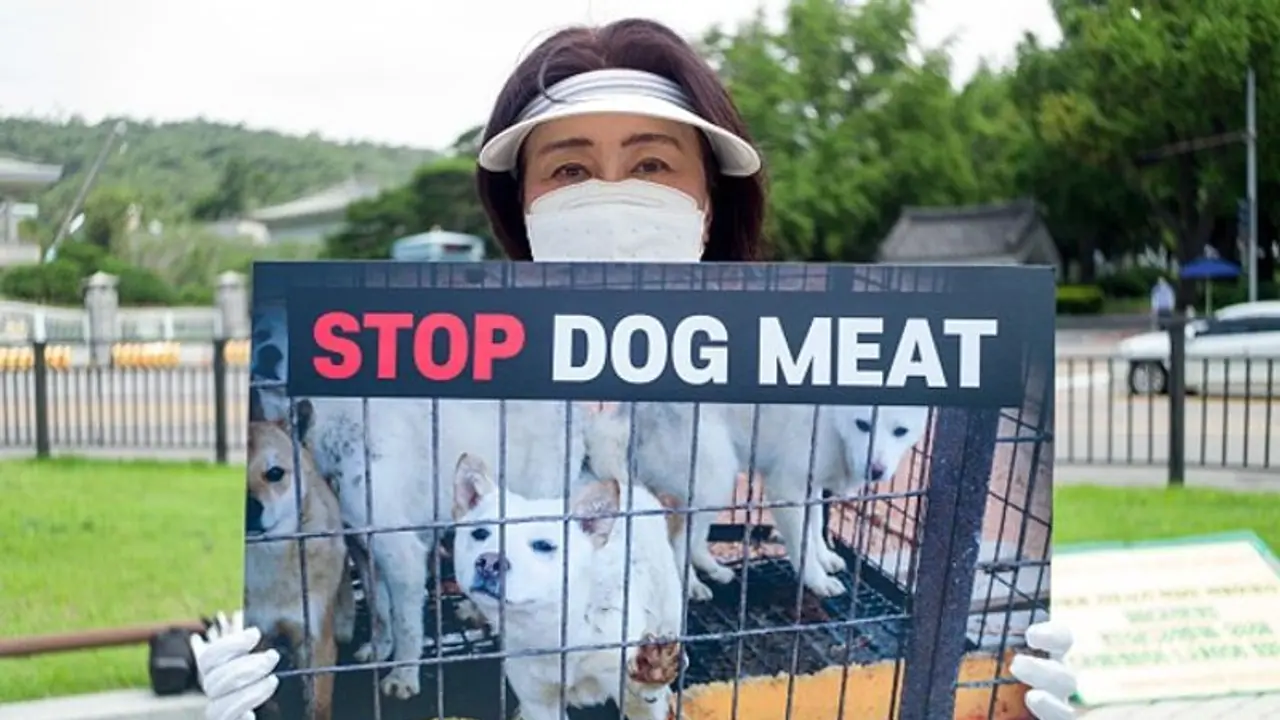South Korea has enacted a law with the goal of ceasing the slaughter and sale of dogs for their meat by the year 2027, marking a significant move to end the age-old tradition of consuming dog meat.
South Korea has enacted a historic law with the aim of putting an end to the centuries-old practice of slaughtering and selling dogs for their meat by the year 2027. The legislation, a significant step toward animal welfare and societal change, seeks to ban the raising, slaughtering, distribution, and sale of dogs for consumption. While this marks a substantial shift in cultural practices, it is not the first attempt to eliminate the controversial industry.

Under the new law, individuals found guilty of butchering dogs could face up to three years in prison, while those involved in raising or selling dogs for meat could serve a maximum of two years. Importantly, the consumption of dog meat itself will not be illegal. The legislation is set to come into effect in three years, providing a transitional period for farmers and restaurant owners to find alternative sources of employment and income. Those affected by the ban will be required to submit a plan outlining the phased closure of their businesses to local authorities.
The South Korean government has promised full support for dog meat farmers, butchers, and restaurant owners impacted by the legislation. However, the details of the compensation offered to those affected are yet to be finalized. The government's commitment to assisting individuals in the industry underscores its recognition of the need for a comprehensive approach to the transition.
As of 2023, South Korea reportedly had around 1,600 dog meat restaurants and 1,150 dog farms. Dog meat, traditionally consumed as a stew known as "boshintang," was once considered a delicacy among older South Koreans. However, changing societal attitudes, particularly among the younger generation, have led to a decline in the popularity of dog meat.
Recent Gallup polls indicate a significant shift in public opinion, with only 8% of respondents admitting to trying dog meat in the past 12 months, down from 27% in 2015. Less than a fifth of those polled expressed support for the consumption of dog meat. Past administrations dating back to the 1980s had pledged to ban the practice, but little progress was made until now. The current President Yoon Suk Yeol and the First Lady Kim Keon Hee, both known animal lovers, have expressed their desire to end the consumption of dog meat.
Animal rights groups, long advocating for the ban, welcomed the legislation. Jung Ah Chae, the executive director of the Humane Society in Korea, expressed surprise and joy at witnessing the ban in her lifetime, stating, "South Korea can now close this miserable chapter in our history and embrace a dog-friendly future." However, dog meat farmers, many of whom are elderly, have campaigned against the ban, arguing that the declining popularity of the practice should allow it to fade naturally over time.
South Korea's decision to phase out the dog meat industry by 2027 reflects changing societal attitudes and a growing emphasis on animal welfare. While the transition poses challenges for those currently involved in the industry, the government's commitment to providing support signals a conscientious approach to addressing the needs of affected individuals. This historic legislation marks a crucial step toward a more compassionate and animal-friendly future in South Korea.
